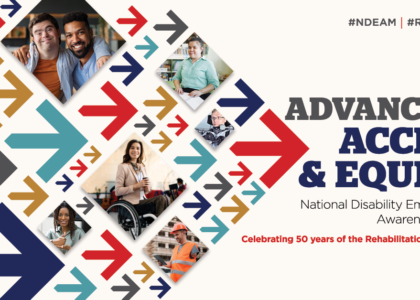In recent years, an increasing number of disabled individuals have chosen self-employment as a pathway into the labor force. Self-employment offers unique advantages and opportunities that resonate strongly with the needs and aspirations of individuals with disabilities. In this blog post, we will explore the reasons why disabled individuals elect self-employment, highlighting the empowerment and independence it can provide.
Flexibility and Accommodation
Self-employment offers unparalleled flexibility, allowing disabled individuals to tailor their work environments, schedules, and tasks to suit their specific needs and abilities. They can create adaptive workspaces, incorporate assistive technologies, and establish routines that align with their unique circumstances. This level of customization and accommodation is often more difficult to achieve in traditional employment settings, making self-employment an appealing option for disabled individuals seeking greater control over their work lives.
Capitalizing on Strengths and Passions
Self-employment enables disabled individuals to capitalize on their strengths, talents, and passions. By starting their own businesses or freelancing, they can pursue work that aligns with their skills and interests, giving them a sense of purpose and fulfillment. This empowerment allows them to navigate beyond the limitations imposed by traditional employment roles, fostering self-confidence and a sense of accomplishment.
Overcoming Barriers and Bias
Entering the labor force as a disabled individual can often be accompanied by various barriers and biases. Self-employment offers an alternative route that bypasses many of these challenges. By becoming their own boss, disabled individuals can sidestep potential discrimination in the hiring process or the limitations imposed by inaccessible workplaces. Self-employment allows them to focus on their abilities and achievements, rather than contending with preconceived notions or misconceptions about their disabilities.
Work-Life Balance
For many disabled individuals, self-employment provides an opportunity to achieve a better work-life balance. They have the flexibility to manage their time and commitments in a way that suits their needs and well-being. This can be particularly important for individuals with disabilities who may require additional rest, self-care, or medical appointments. Self-employment enables them to prioritize their health and personal life while still pursuing their professional goals.
Income Potential and Financial Autonomy
Self-employment offers the potential for increased income and financial autonomy. Rather than relying solely on fixed wages or salaries, disabled individuals have the opportunity to set their own rates, negotiate contracts, and determine their earning potential. This autonomy can be particularly empowering for individuals with disabilities who may face barriers to accessing traditional employment or encounter wage disparities.
Creating Inclusive Entrepreneurship
By choosing self-employment, disabled individuals contribute to the growth of inclusive entrepreneurship. They become part of a diverse group of business owners who challenge conventional notions of entrepreneurship and demonstrate the valuable contributions individuals with disabilities can make to the economy. Their successes inspire others and pave the way for a more inclusive and equitable entrepreneurial landscape.
Self-employment offers disabled individuals a pathway to independence, empowerment, and fulfillment in the labor force. It provides the flexibility to accommodate individual needs, the opportunity to capitalize on strengths and passions, and the ability to overcome barriers and biases. By electing self-employment, disabled individuals are not only carving out their own professional paths but also reshaping the narrative around disability and work. As we continue to embrace and support self-employment options, we create an environment that promotes the autonomy, potential, and success of disabled entrepreneurs.





